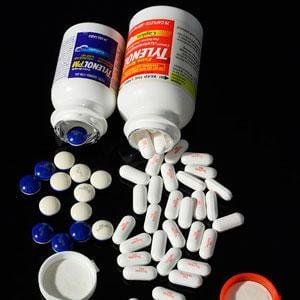Kidmin is commonly used to supplement amino acids in patients with acute or chronic kidney failure experiencing hypoproteinemia or malnutrition, and before or after surgery. It helps maintain protein balance in patients with acute or chronic kidney failure undergoing hemodialysis and peritoneal dialysis.
1. What is Kidmin?
Kidmin is available as a 200mL intravenous solution containing the following main ingredients: L-leucine 2.8g, L-isoleucine 1.8; L-valin 2g, L-lysine acetate 1.42g, L-methionine 0.6g, L-phenylalanine 1g, L-threonine 0.7g, L-tryptophan 0.5g, L-histidine 0.7g, L-arginine 0.9g, L-tyrosine 0.1g, L-alanine 0.5g, L-aspartic acid 0.2g, L-cysteine 0.2g, L-glutamine 0.2g, L-proline 0.6g, L-serin 0.6g.
- Formulation: Intravenous infusion solution.
- The main active ingredient of Kidmin is a mixture of the substances previously mentioned, providing the therapeutic effects of these amino acids.
1.1. About L-Arginine
- Pharmacodynamics: L-Arginine is a hepatotropic agent that lowers blood ammonia levels.
- Function: It activates the synthesis of N-acetyl glutamic acid and promotes the synthesis of carbamoyl phosphate (involved in the urea cycle). In cases of hereditary urea synthesis impairment, Arginine facilitates ammonia detoxification and elimination as citrulline or argininosuccinic acid.
1.2. About L-Lysine
Pharmacodynamics: L-Lysine is an essential amino acid that forms part of protein structures. It is effectively used to treat cold sores caused by the Herpes simplex virus.
Functions:
- Lysine is one of the 12 crucial amino acids for health, enhancing calcium absorption and maintaining its concentration in the body. This compound promotes muscle growth, reduces glucose levels, and alleviates anxiety.
- Especially, Lysine is especially important for growth during puberty, aiding height development. Moreover, it also prevents osteoporosis, especially in older adults.
- Plays a key role in collagen synthesis. This is an important nutrient for the formation and development of bones and connective tissues such as skin, tendons, and cartilage, making them stronger and healthier.
- Boosts immune system function and promotes optimal digestive enzyme development. Additionally, it also stimulates appetite, especially in children aged 8–16 years.
- Inhibits the growth of bacteria causing cold sores so it is often prescribed for patients with genital herpes.
2. What is Kidmin used for?
- Supplies amino acids and nutrients for patients with acute or chronic kidney failure with hypoproteinemia.
- Patients with malnutrition and before or after surgery.
- Balances protein components in acute or chronic kidney failure cases undergoing hemodialysis and peritoneal dialysis.
- Provides intravenous nutrition for patients with hepatic coma.
3. Uses and dosage of Kidmin
3.1. Dosage
- Chronic kidney failure: Peripheral IV infusion (adults): 200mL/day at a rate of 100mL/hour (slowly infused in children, elderly, and critically ill patients). For hemodialysis: Infuse intravenously 60–90 minutes before hemodialysis finishes. Central IV infusion (adults): 400mL/day.
- Acute kidney failure: Adults: 600mL/day via central IV drip.
Dosage adjustments depend on the patient’s weight, age, and clinical condition.
3.2. How to use Kidmin effectively
- Administer intravenously at a rate of 2–2.5mL/min (approximately 40–50 drops/min).
- Follow medical instructions precisely for optimal results.
- When using Kidmin, you should maintain a healthy diet rich in vegetables and fruits, especially those high in vitamin B.
- Avoid alcohol and stimulants during treatment.
4. Side effects of Kidmin
- You can experience gastrointestinal disturbances with symptoms such as nausea, vomiting, or severe diarrhea if you take Kidmin at a high dose.
- Fever and chills can occur.
- Kidmin also may lead to headache, fatigue, or skin rash.
- If you experience any abnormal signs or symptoms, you should report to your doctor immediately for appropriate advice and management.
5. Drug interactions of Kidmin
No significant drug interactions with Kidmin have been reported. However, inform your doctor about all medications or supplements you are taking to avoid potential interactions.
6. Precautions of Kidmin
6.1. Contraindications
- Do not use in patients allergic to any components of the medication.
- Do not use in patients with severe renal failure, heart failure, or metabolic disorders.
- Contraindicated in patients with high blood cholesterol levels.
6.2. Warnings and precautions
- Avoid missing doses to achieve the best therapeutic effect.
- Do not use expired medication.
- Inspect the color and clarity of the solution before use.
- Inform your doctor about your health conditions and concurrent medications to minimize adverse effects.
- For pregnant and breastfeeding women: Carefully weigh the benefits and risks before use.
6.3. Storage of Kidmin
- Kidmin should be stored in a cool, dry place, and kept away from children and pets.
- The optimal storage temperature should be maintained below 30°C.
- Avoid storing in damp areas like bathrooms or near sinks.
Kidmin is an effective treatment for providing amino acids in cases of acute or chronic kidney failure with hypoproteinemia, malnutrition, and before or after surgery. Use the medication as directed by your doctor to maximize benefits and minimize potential side effects. Follow the Vinmec International Hospital website for more information on health, nutrition, and beauty to safeguard your well-being and that of your family.
To arrange an appointment, please call HOTLINE or make your reservation directly HERE. You may also download the MyVinmec app to schedule appointments faster and manage your reservations more conveniently.








